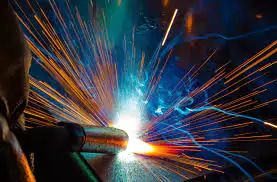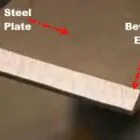
Welding is one of the hardest jobs to learn. It takes time and welding tips to get good at it.
In this trade, it’s important to pay close attention to the details and know a lot about all the things. The things that affect the quality of the end result.
If you want to become a professional welder, it’s important to take classes on the basics of welding. You should also learn from experts (vocational training).
Anyway, if you’re new to welding, this article has some tips you should remember:
- It’s important to know the metal.
Good welders need to know about metallurgy, which means they should know what kind of base metal and electrode they are using and how the final bead will behave.
- Going with the flow.
The type of metal and the type of electrode directly affect the type of current (AC or DC) that welders should use to make a welding bead. So, you should go over the theory and try practising on scraps of fabric with different settings.
- Stay calm and loosen your grip.
For a good welder to have control over the weld pool and make a good weld, they must relax their hand, especially their wrist, instead of holding the gun or stinger too tightly.
- Making the curve.
For beginners, it can be hard to hit the arc. The best thing to do is to start the arc right where the welding bead starts. It’s a common and big mistake for a technical beginner to do it outside of the weld joint, on a table or a scrap piece of metal.
- Removing slag.
Beginners also make a big mistake by not removing the slag from a weld properly. This can lead to a very brittle weld and a weld that is covered in slag, which makes it hard to tell how thick the welding bead underneath is.
- Don’t make a mess.
If you don’t clean or grind the grease, rust, oil, or rust out of the weld joint, the weld can become contaminated.
- Find a mentor in welding
In the welding industry, training is very important, and repeating exercises and welds is a great way to “automate” the basic steps. However, having an experienced welder by your side makes the learning process much easier. In this field, experience is very important, and a welding mentor can give you tips that could help you move up to the next welding level.
- Keep yourself safe with the right safety gear
Even for people who have done it before, welding can be dangerous. When you need to weld, you should always be careful and use the right safety gear for the job. Make sure that all the equipment is in good shape and that everyone, especially you, is safe. Read our guide on how to be safe when welding to learn more. This is a less of tips and more of a mandate policy which should be followed always.
- Choose which type of welding to learn first.
When you think about all the possible processes, positions, techniques, and materials, welding training can be very complicated. The best way to get around this is to take it one step at a time. Pick the process you want to learn first and focus on it until you know it inside and out before moving on to the next one.
- Find the right speed for your trip
Welding is not a good place to be in a hurry, especially if you want to do a good job. One of the most important parts of welding training is learning how to find the right speed. A good welder knows exactly what speed he needs to follow. He knows the speed is based on all the parts of the weld he needs to do.
As you can see, welding is a difficult skill to master because it involves many different steps, materials, positions, and tools. But if you have the right training, tools, tech, and trainers, it can be a lot easier.




